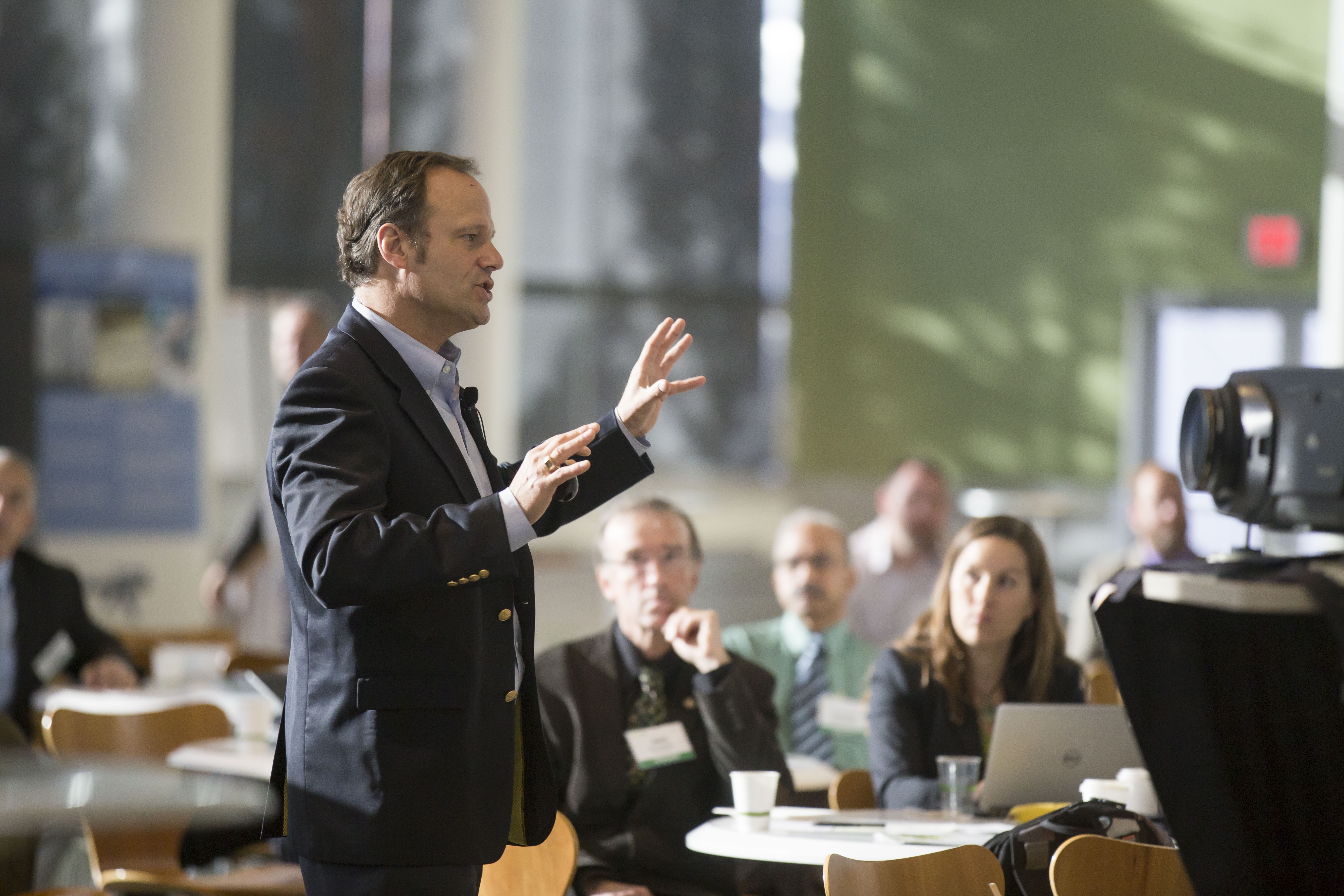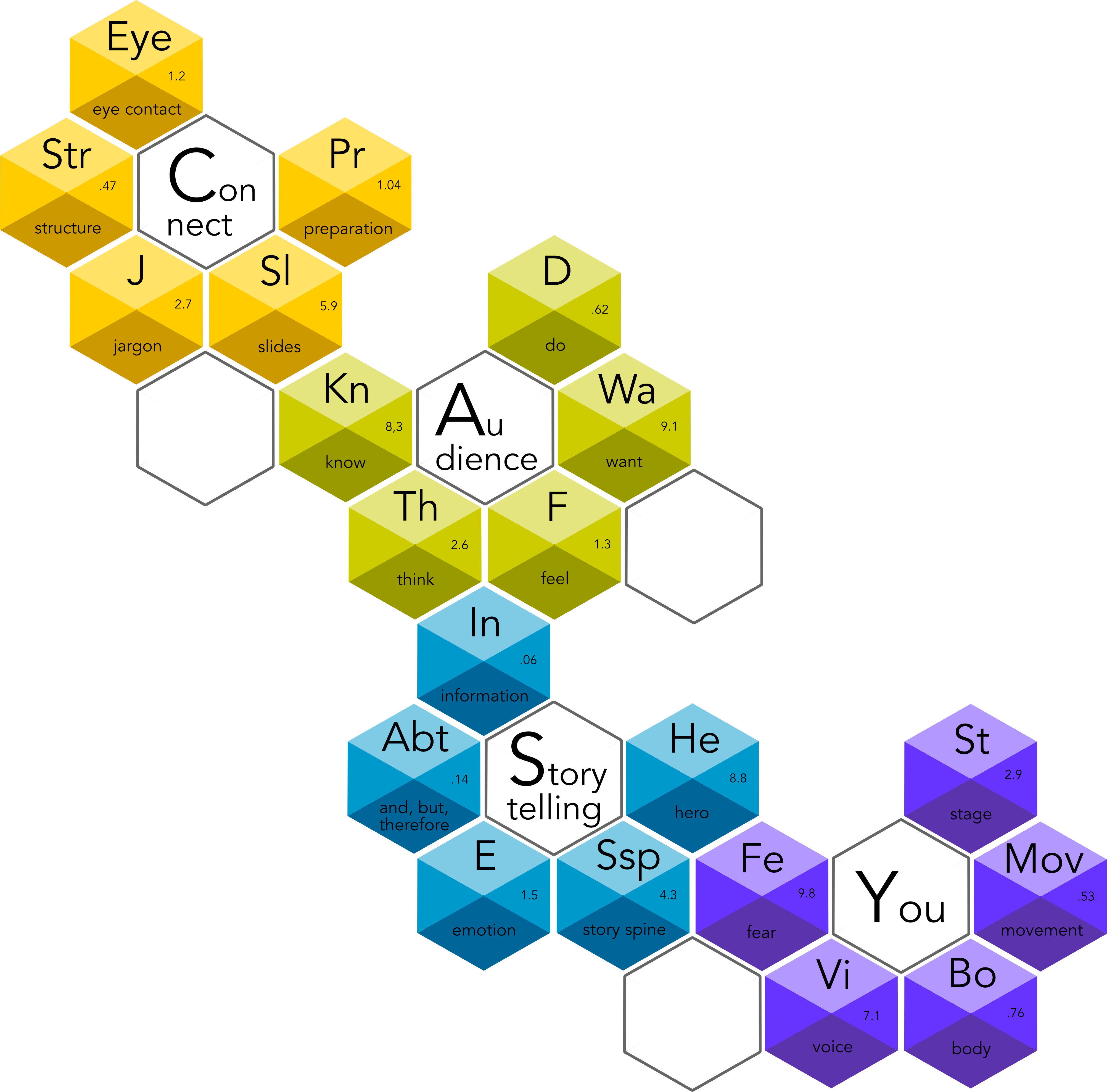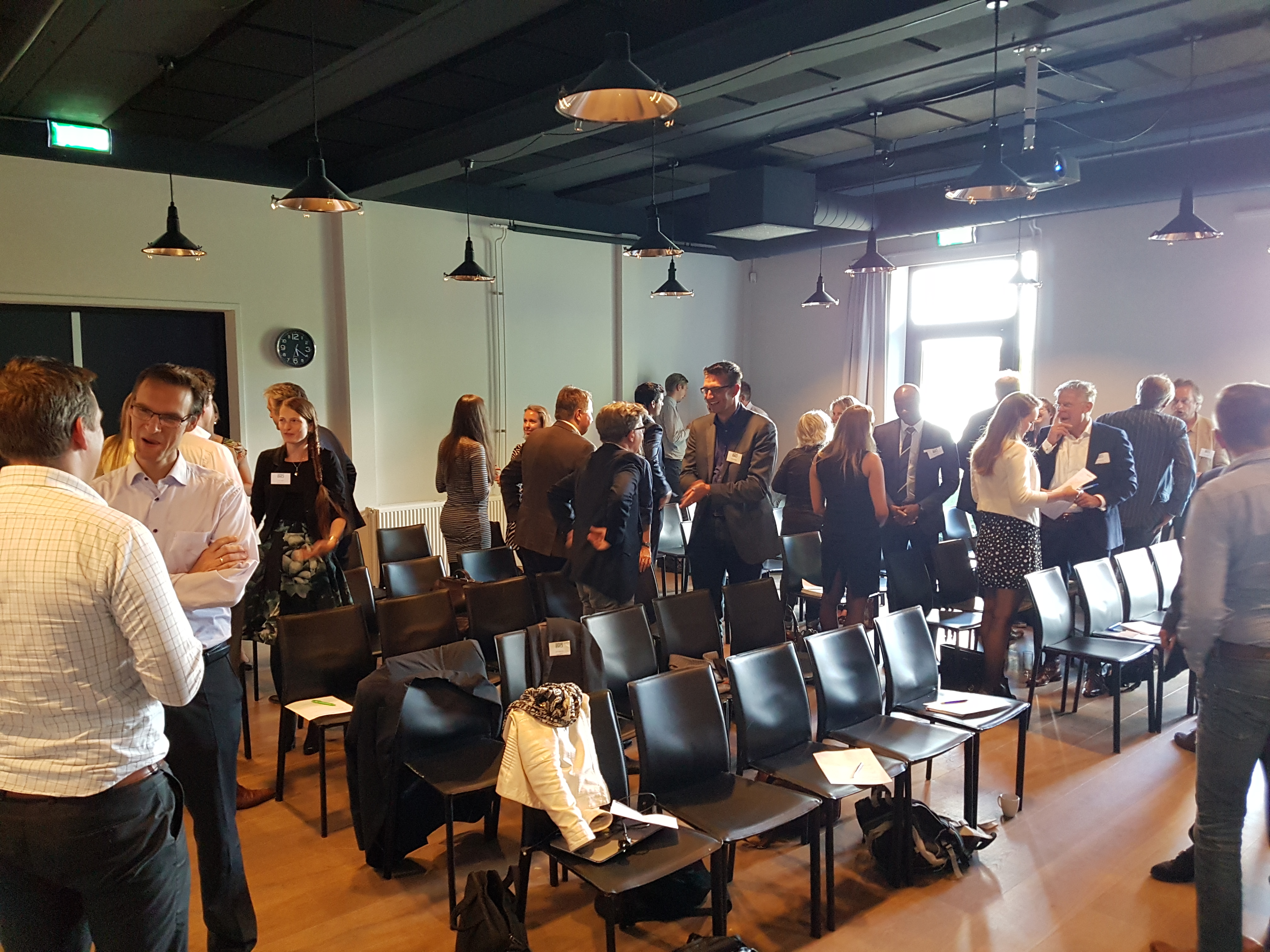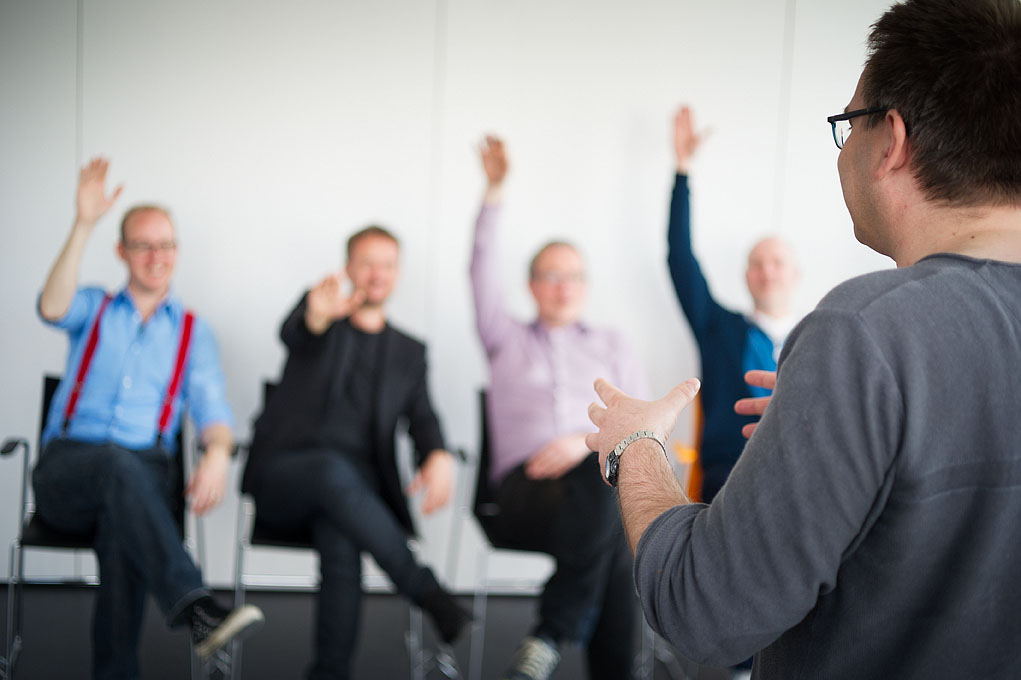Pitching to investors is a skill every scientist who starts or owns a company should learn. Pressed by time the stakes are high, so you have to excel in your story, your slides and your performance. Most of the time you have only one shot at success.
You will learn how to create a killer pitch. We will focus on effective slide design, data-visualization and storytelling, powerful vocal and non-verbal skills and how to tell your story in 1 minute.
Present Your Science More Effectively.
Communicating Science
Science cannot exist without communication. Discoveries are often the result of collaborations of dozens of scientists. Society is constantly looking over your shoulders, curious of your results and often very critical of the approach and efficiency of the “expensive” science. The competition for funding your research forces you to be cogent, comprehensible and profound.

To be successful in such an environment, your ability to present a clear, informative and convincing story that is tailored to your audience is essential and can make a huge difference to your research. You will become more credible and will make a lasting impression at conferences. It simply helps to speed up your career. It also ensures that decision makers better understand your goals; as a result, you may receive more grants, collaborate with the best partners, and your inventions reach the market sooner.
Our unique method helps you develop the skills you need to become a more successful presenter.
Four Elements of Presenting
As a scientist, when it comes to your work, you are educated to be rational, objective and critical. But when you communicate with an audience you have to talk to them in the same way as they see you, both rational and emotional. Their understanding of what you say is the result of all the clues they can put together: of course the words you say, but also how you say them. Your facial expressions, tone of voice, body language, any telling words you let drop and also the design of your slides, the stories you tell and the way you visualize your data define the success of your presentation.

To meet their expectations you have to master the Four Elements of Effective Presenting: Connect, Audience, Storytelling and You. You have to make and maintain a strong Connection by engaging and relating with your Audience through Stories and Your vocal and non-verbal skills. In short: C.A.S.Y.
We have developed a unique method for you to master these elements. It combines a clear outline for your preparation and structure of your presentation with insights and exercises from (improvisational) theater, the science of storytelling and the latest developments in slide design and data visualization.
Applied Improvisation
To develop your personal presentation style and learn to control what you are communicating we work with a set of specifically designed exercises. With Applied Improvisation you learn to observe the other person, track their body language and tone of voice, intuit their thoughts and feelings. It helps you to suppress your self-awareness and stop the thinking, comparing and judging.

Training
We believe in experiential learning. That is why all of our sessions are highly interactive. We create a safe learning environment in which we challenge you to be open, take risks and take in relevant, constructive feedback. Of course, you can apply your new insights and knowledge the next day at work.
We can help you with the following topics:
(Click on the icons for more information)
Coaching
Do you have any specific needs and wishes when it comes to presentations? Is there something you always have been struggling with and want to tackle once and for all? Or do you have an important pitch or keynote coming up and could you use some constructive feedback? Then coaching is for you.
We love one-on-one coaching, because it enables us to help you the best way we can. Completely tailored to your situation and with the possibility to quickly adjust every session to what comes up.
There are two kinds of coaching:
(Click on the icons for more information)
Unique Combination of Science and Training
With our unique combination of extensive experience in science communication, coaching & training and applied improvisation we are well suited to help you to improve your presentation skills. So you are able to present your research more clearly and effectively to colleagues, opinion leaders, policy makers, the media and everyone else inside and outside your work field.
Spreekmeesters is founded by Jos Joore and Marco Rochette.

“Everything should be made as simple as possible, but no simpler.”
- Albert Einstein -
